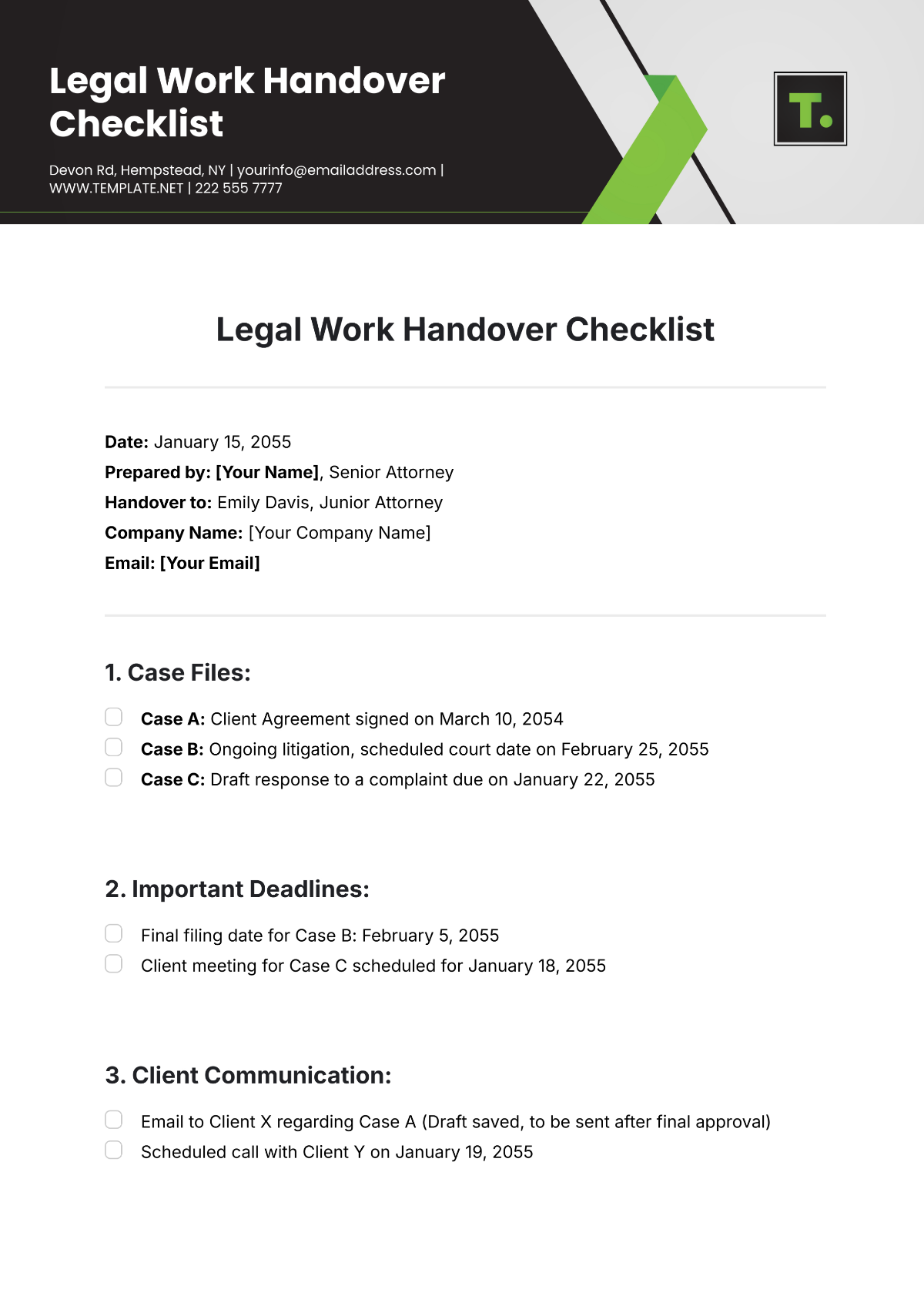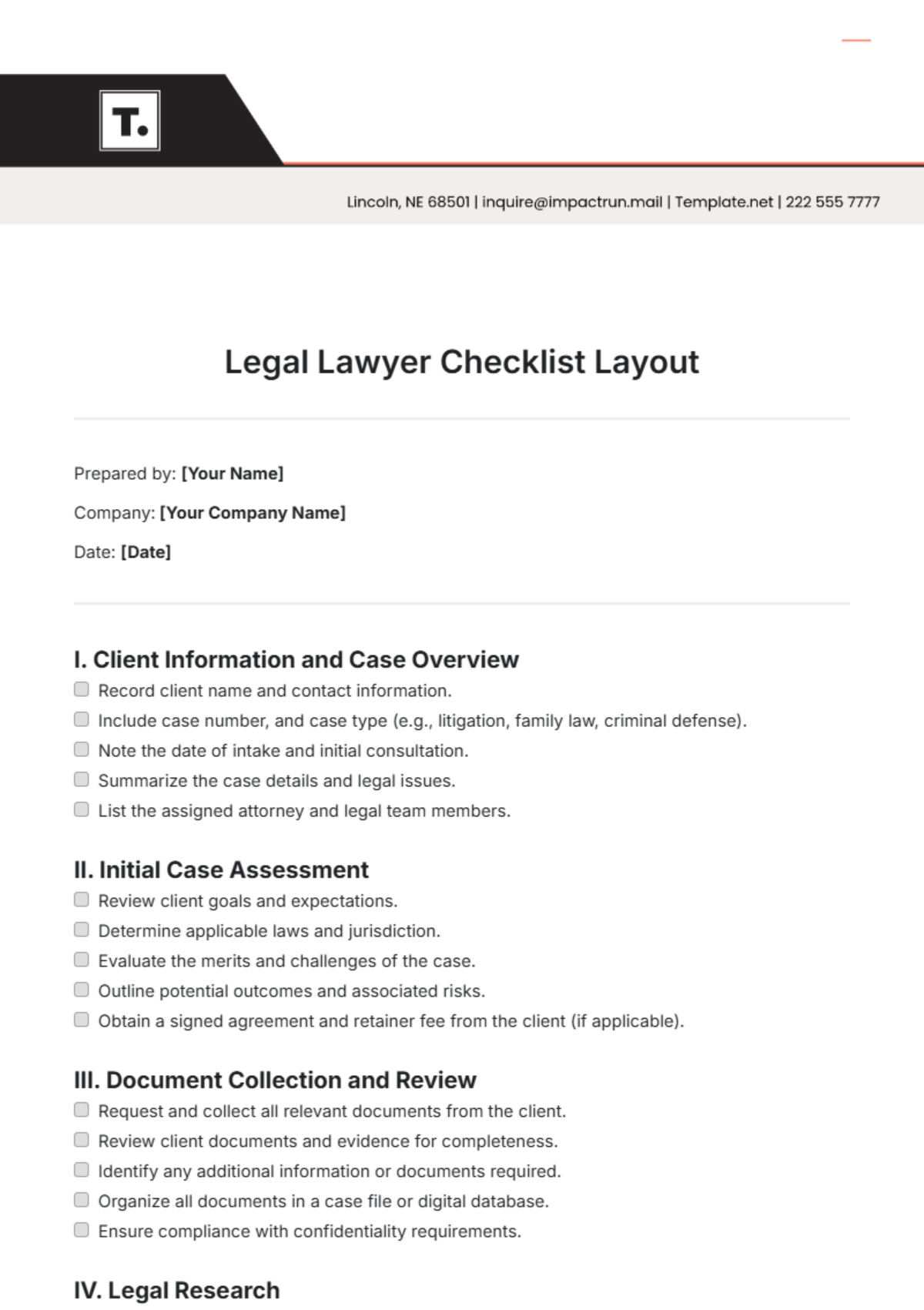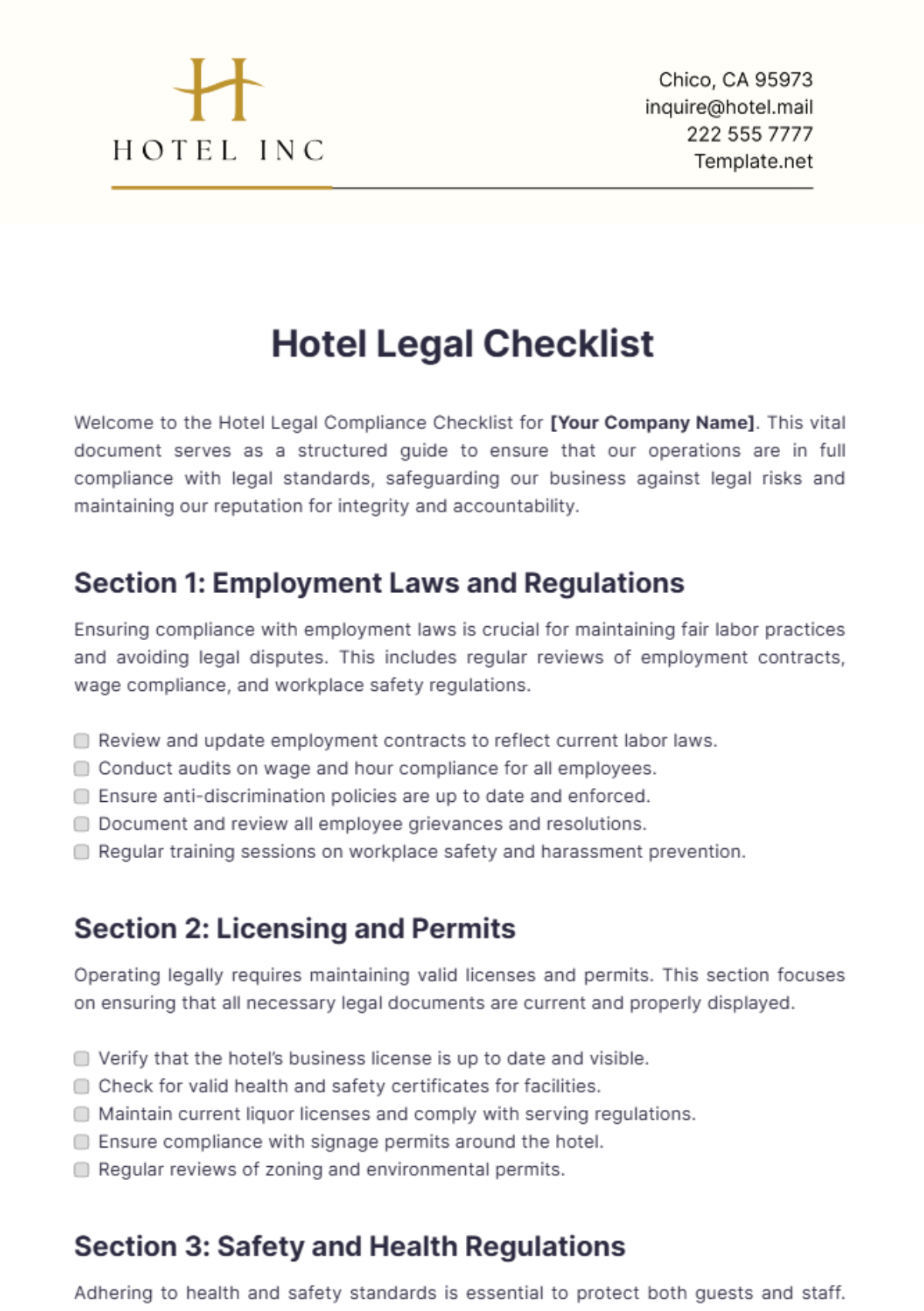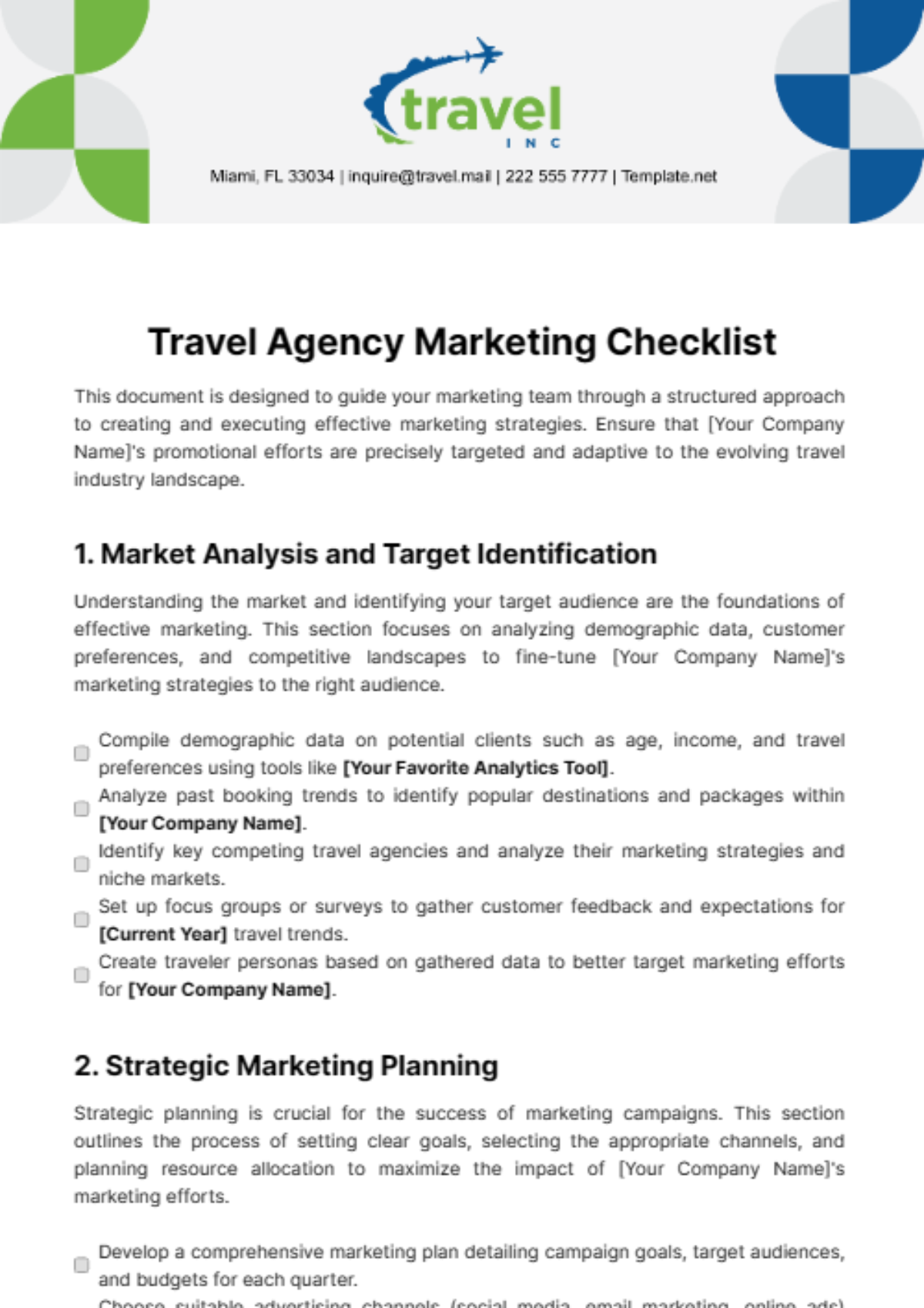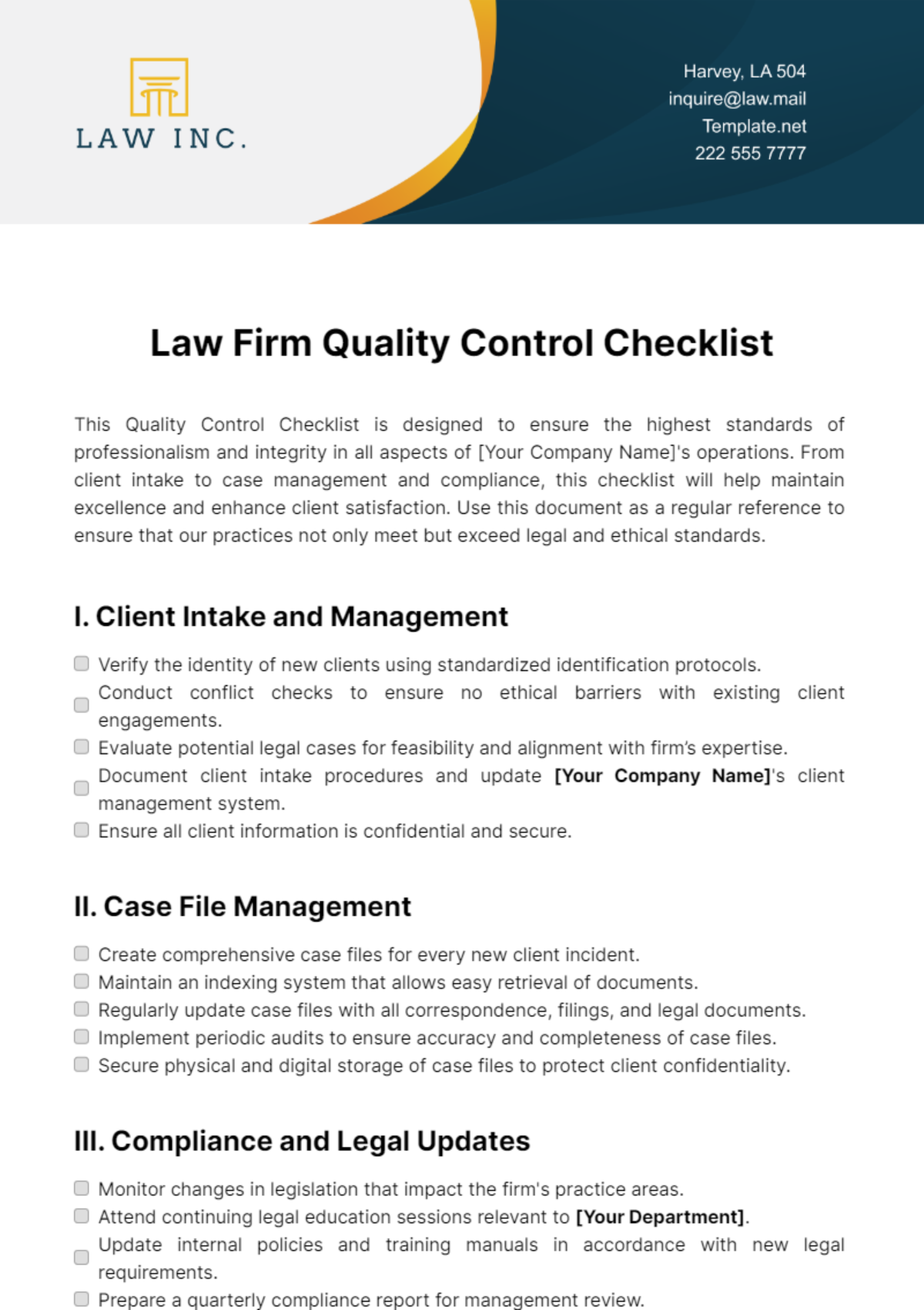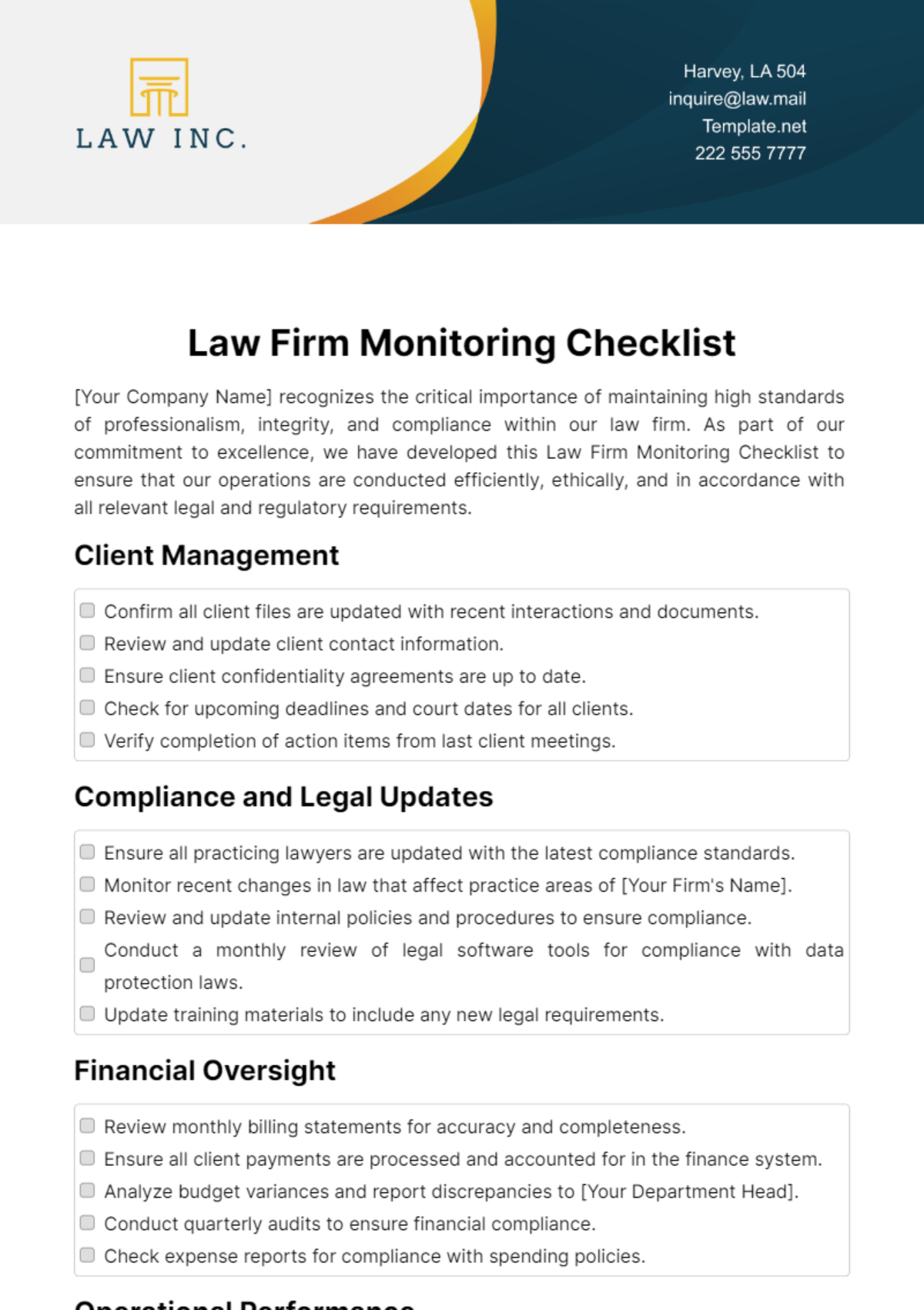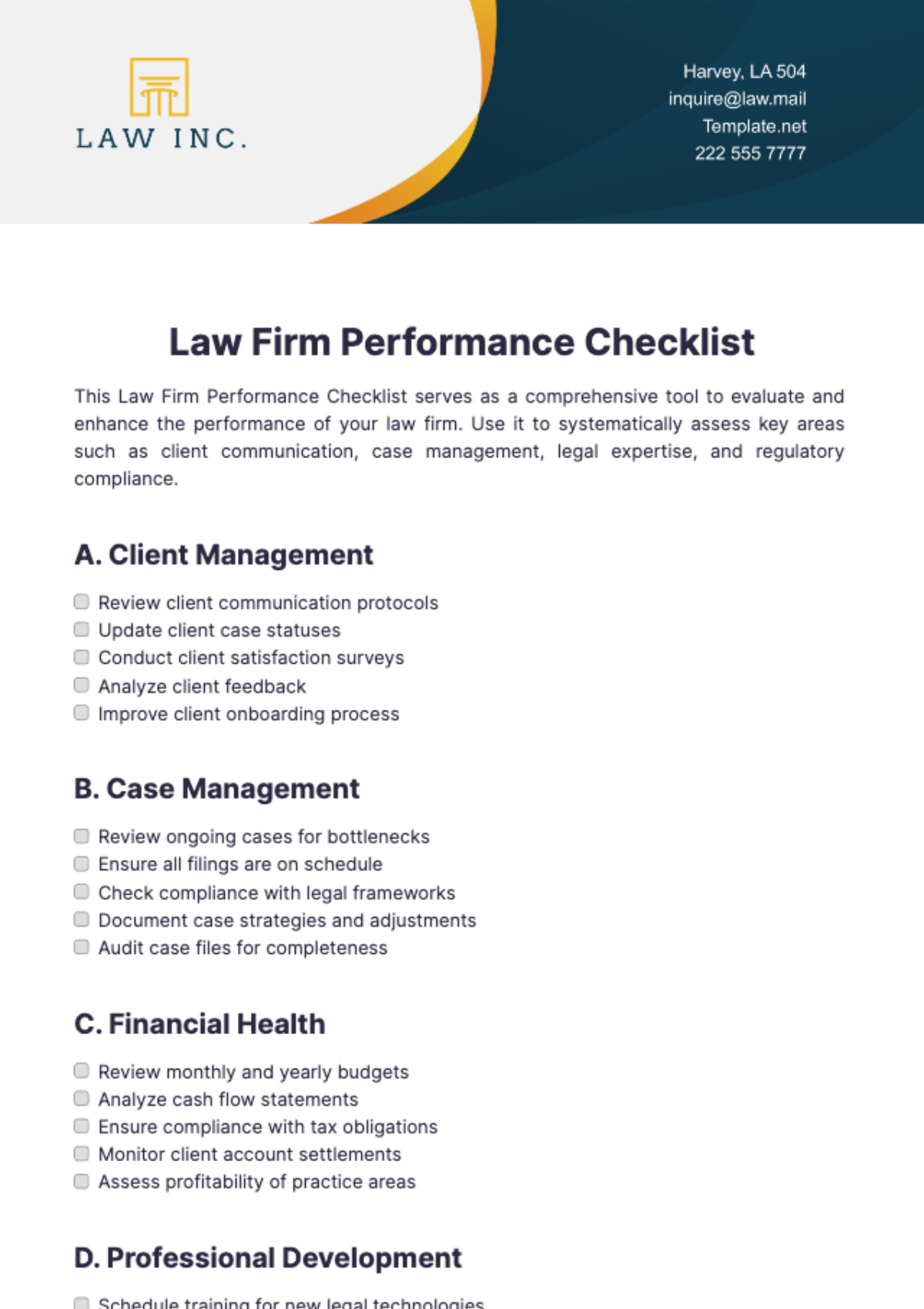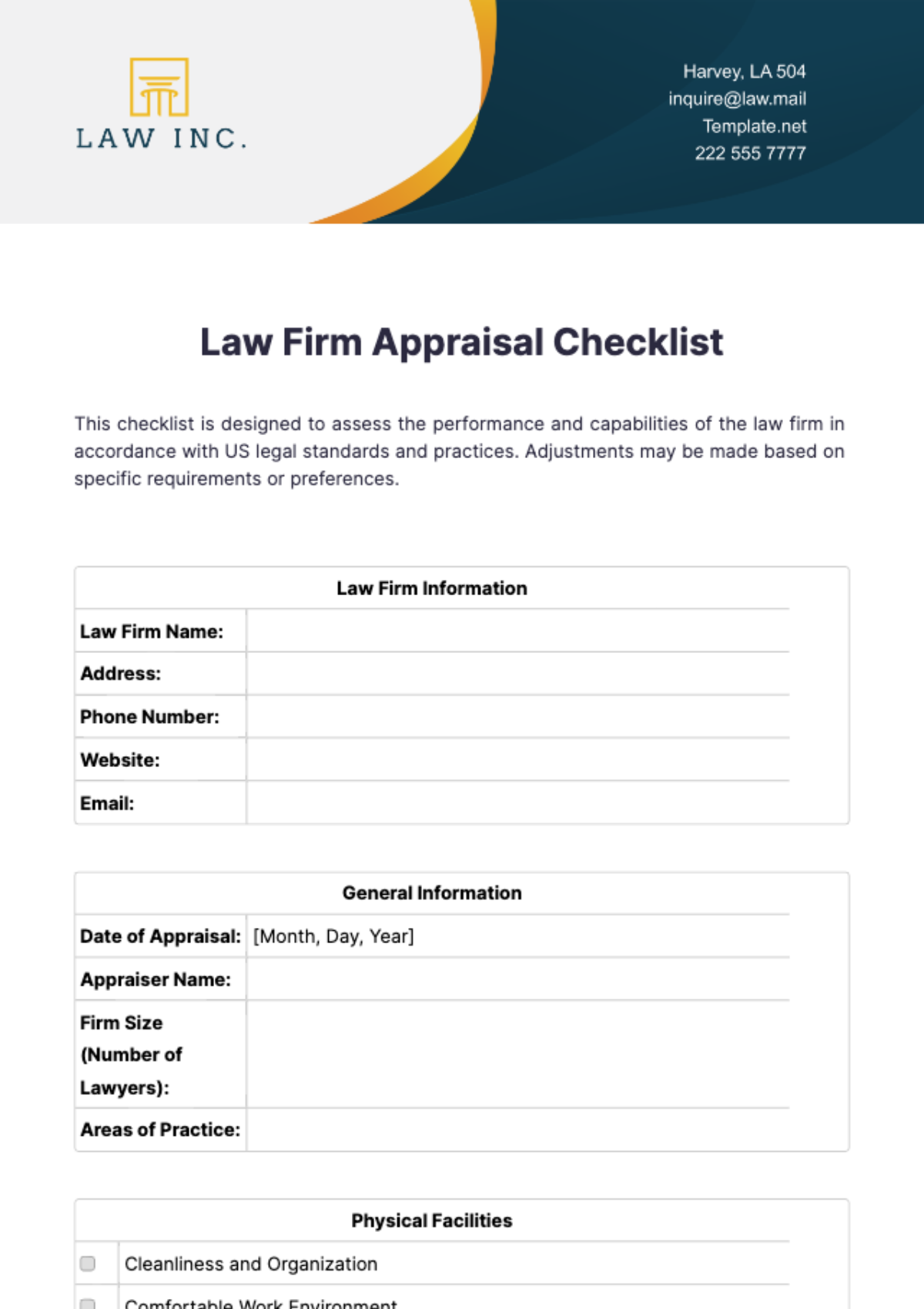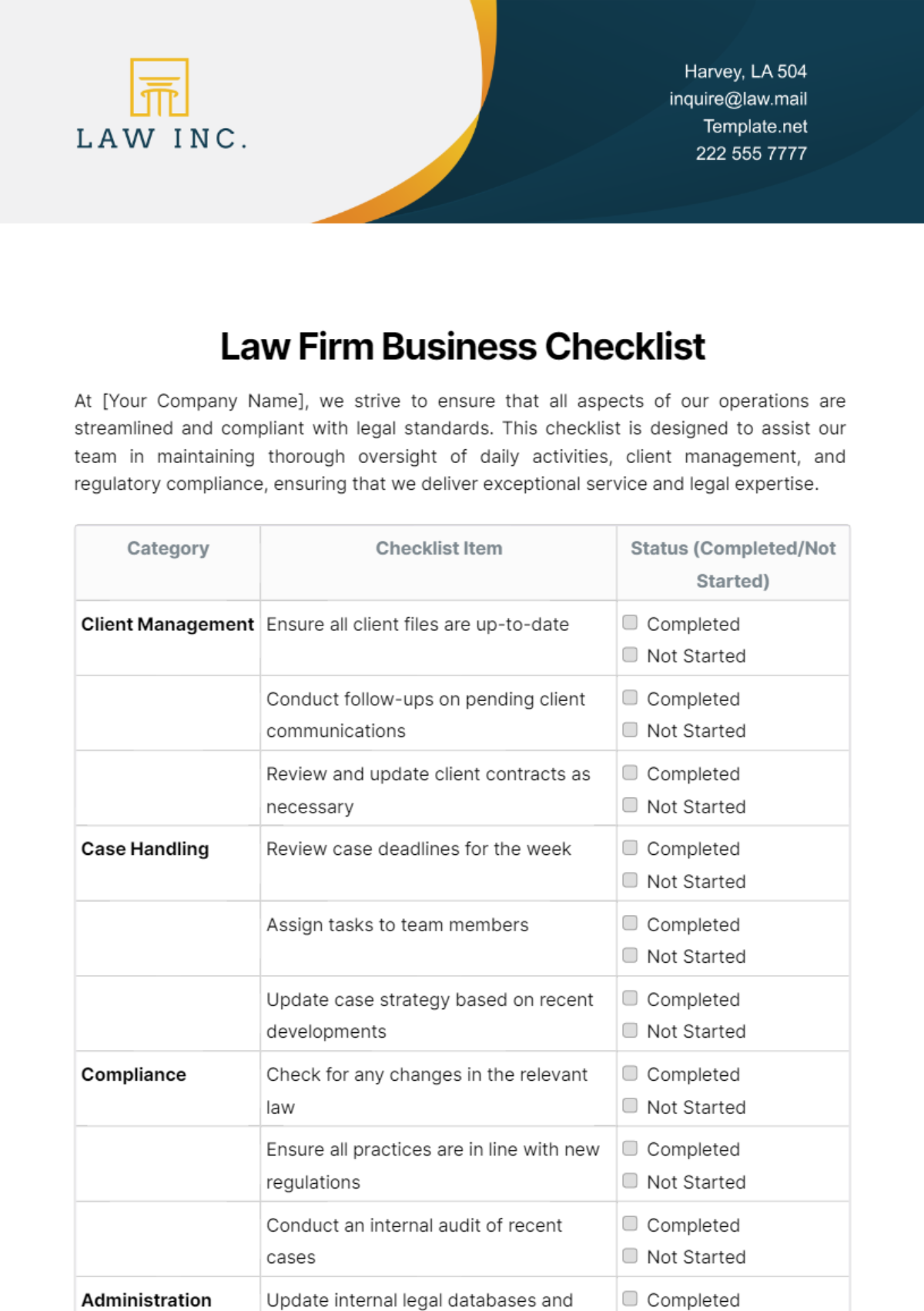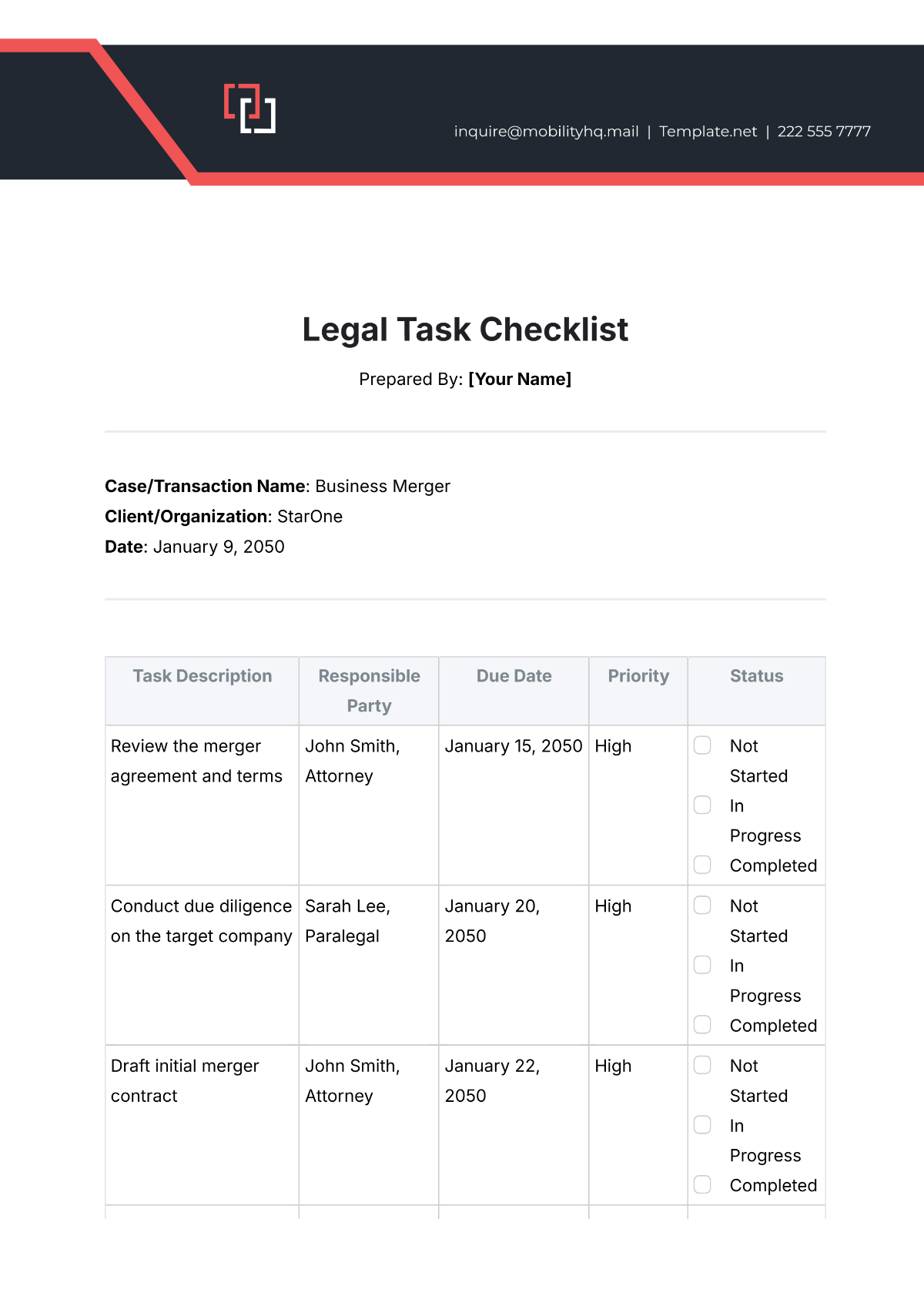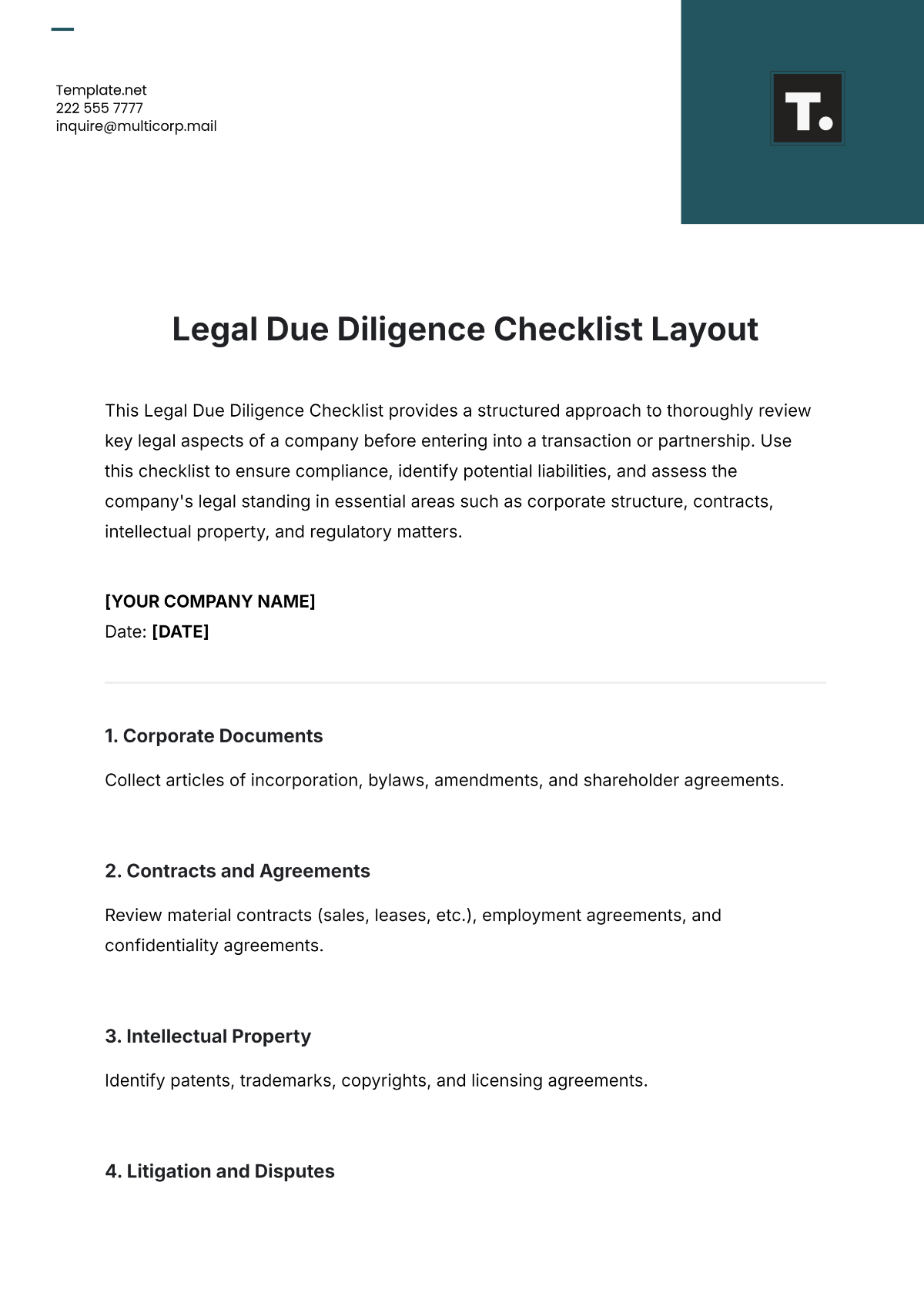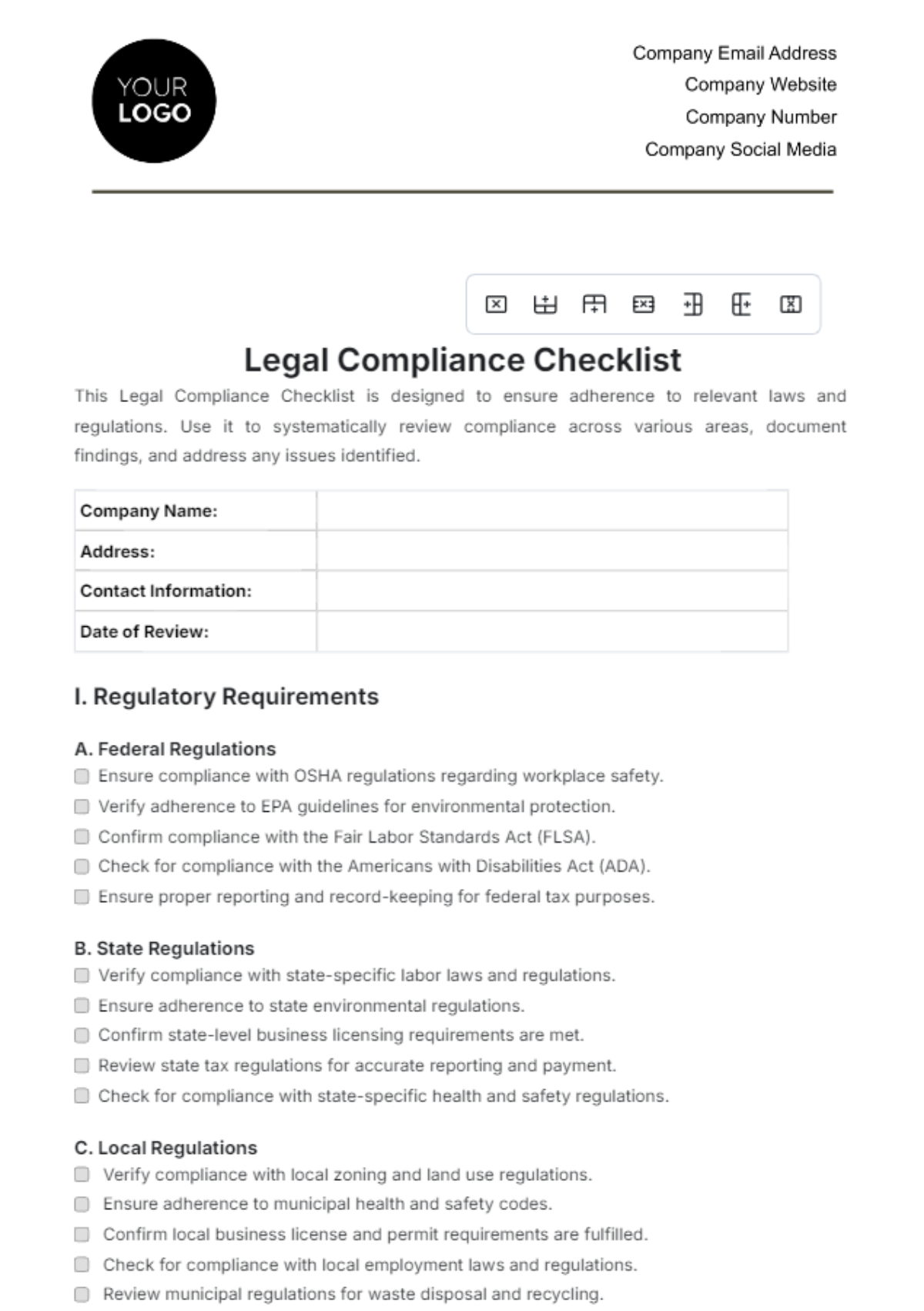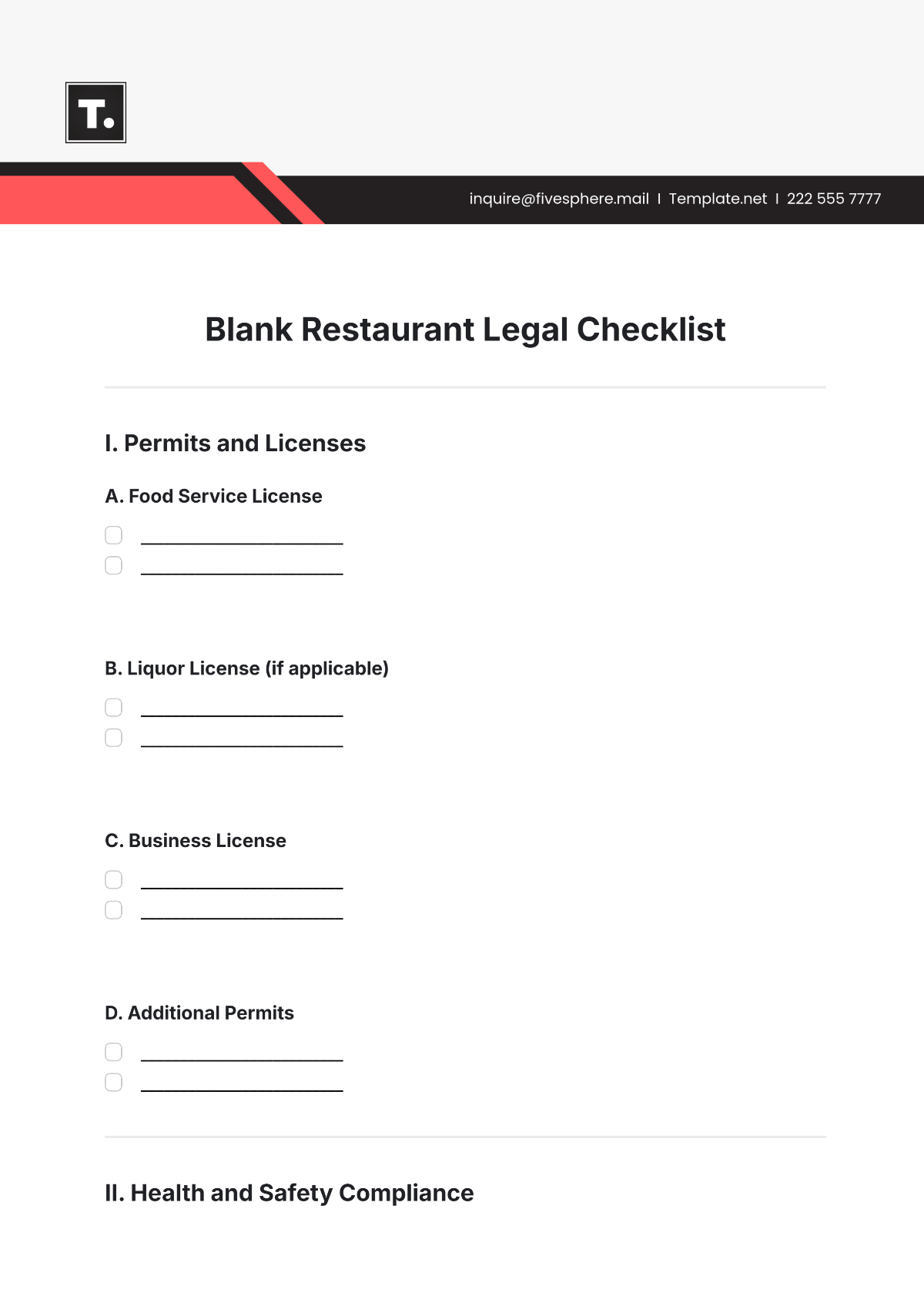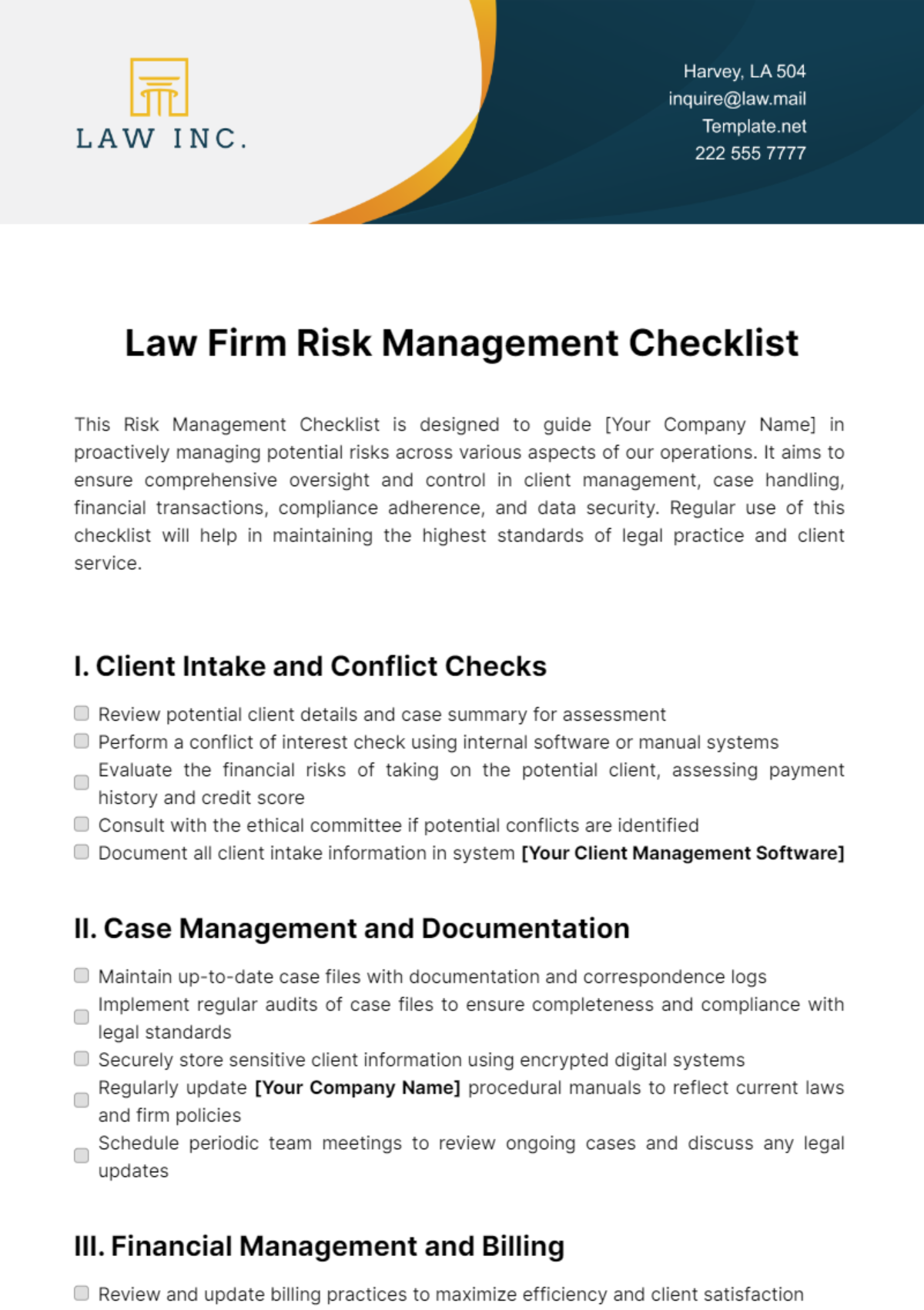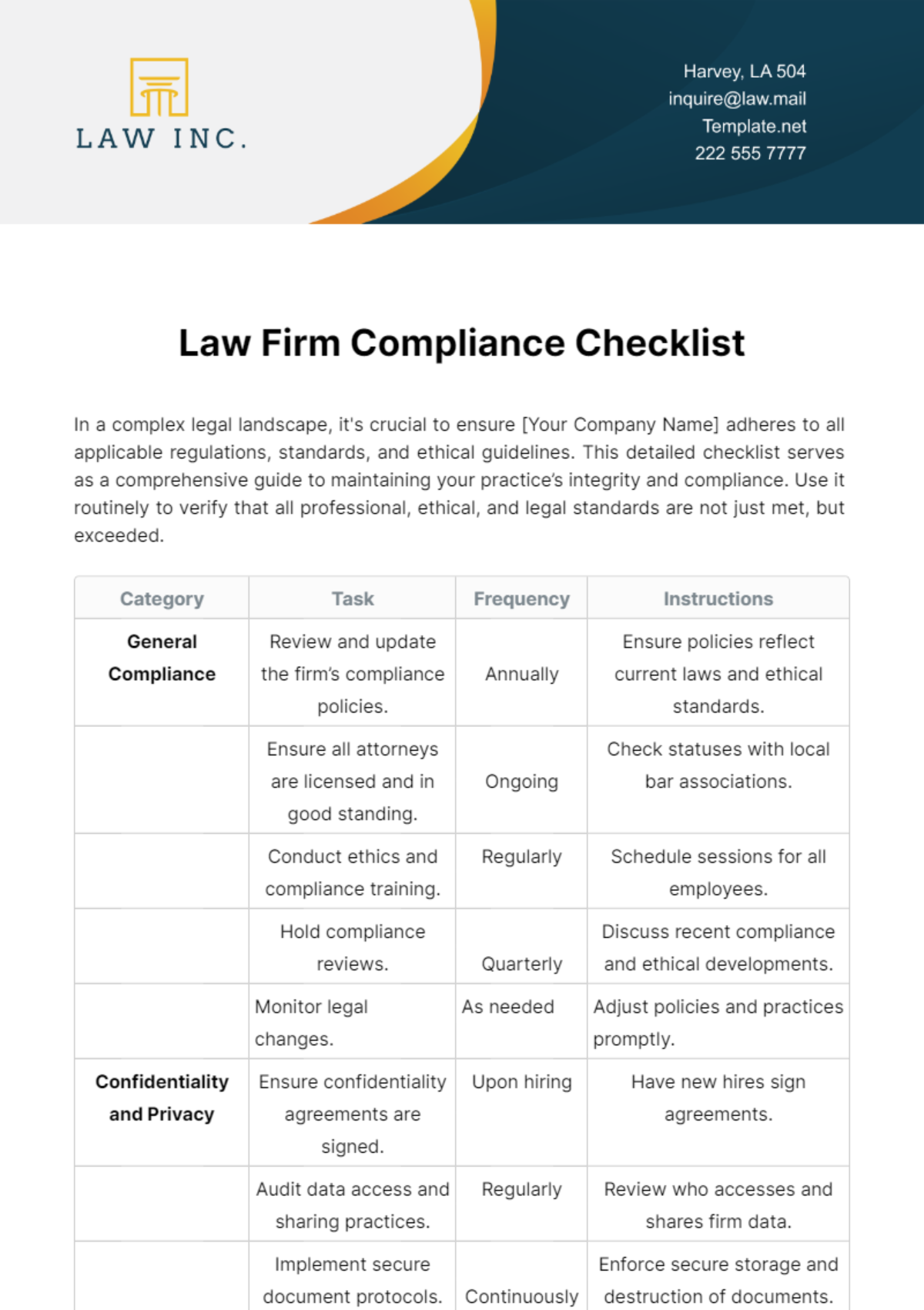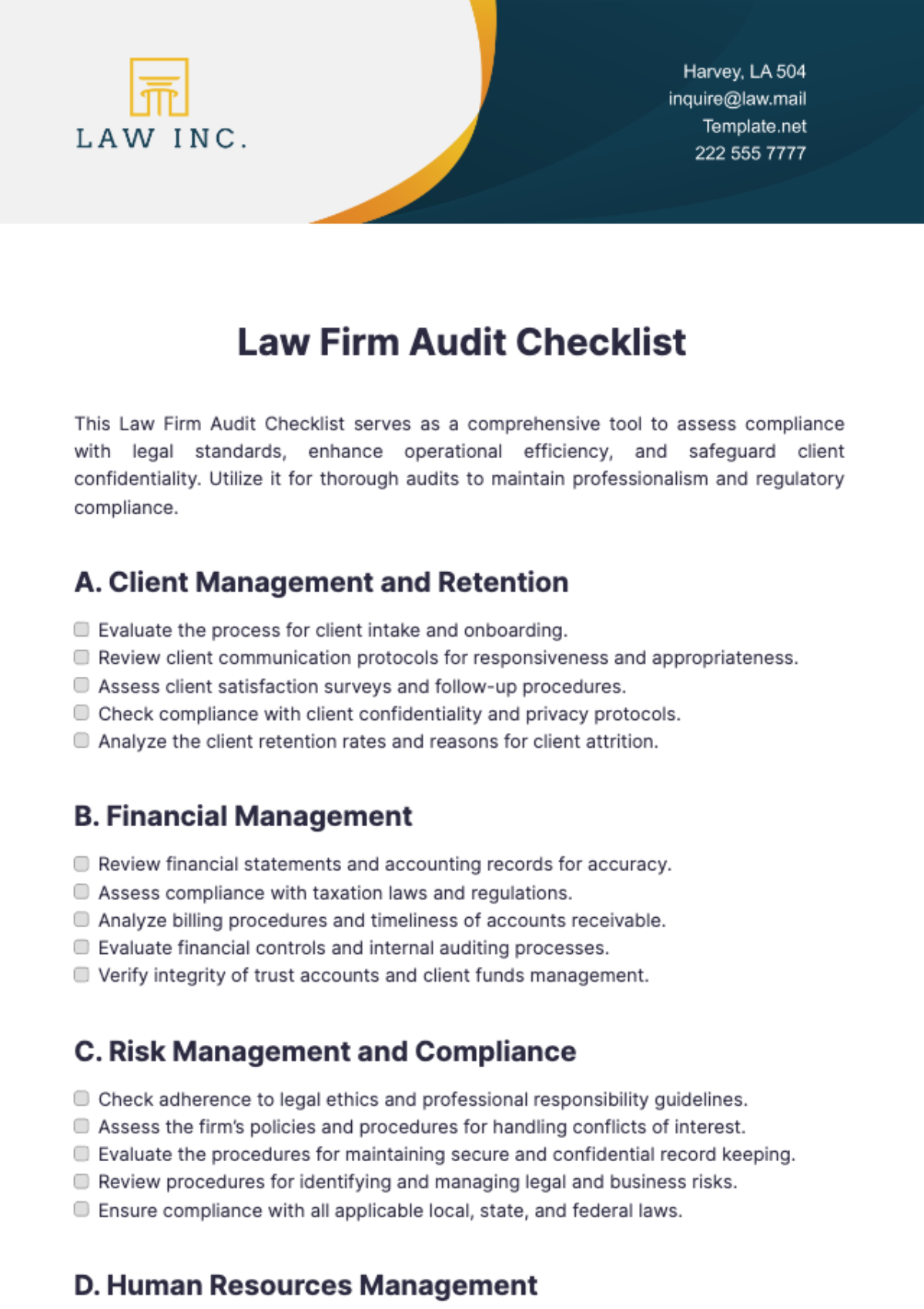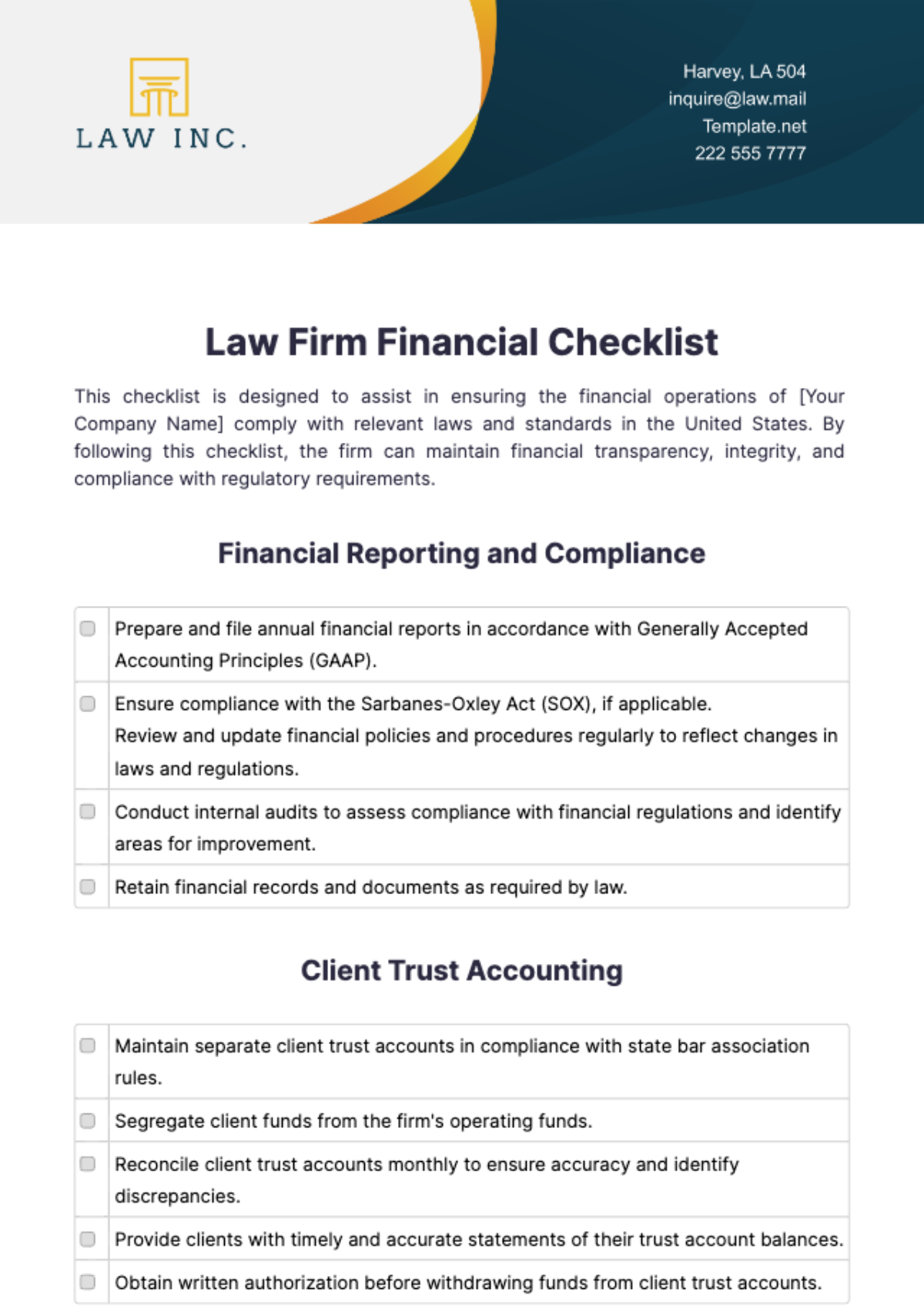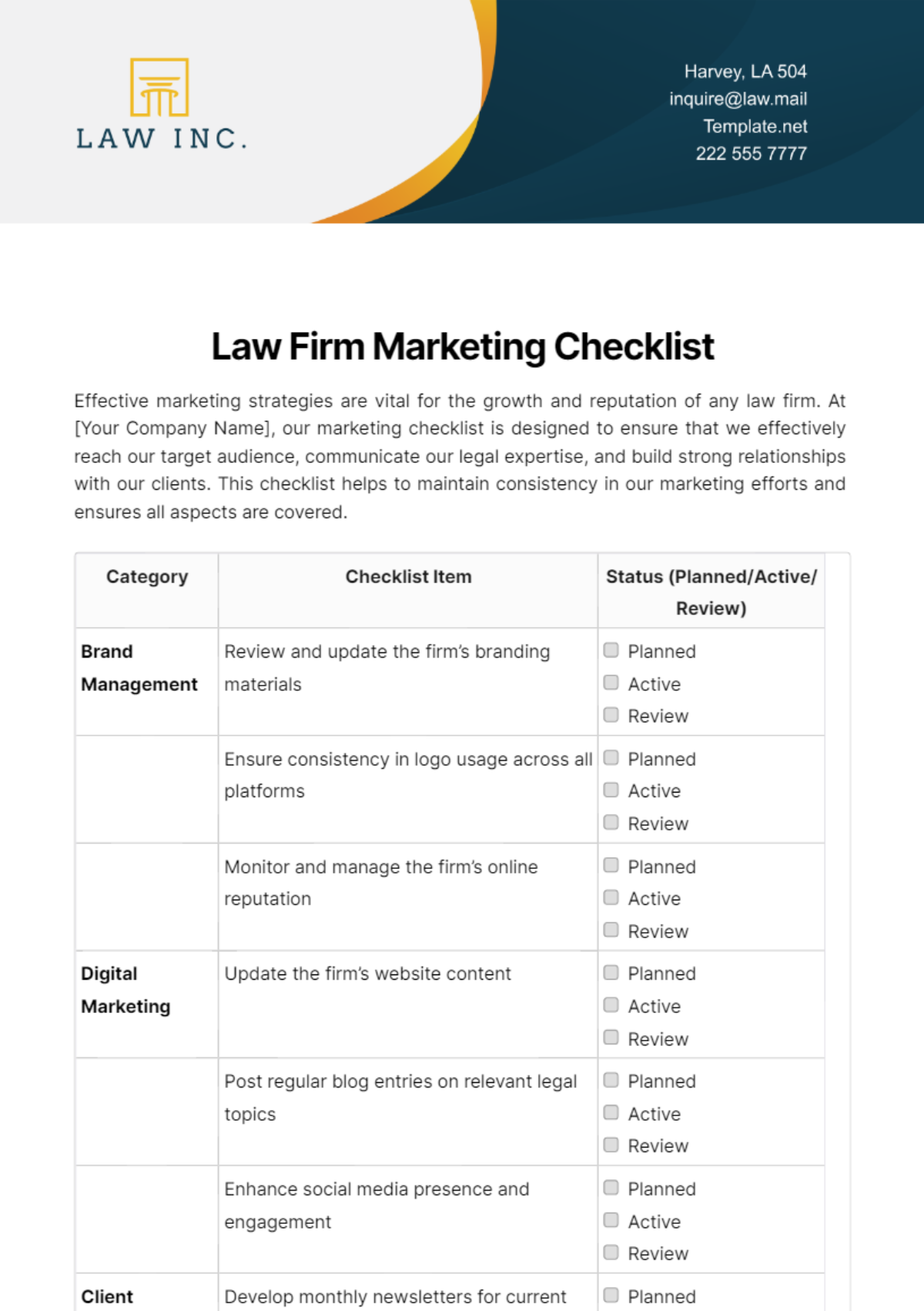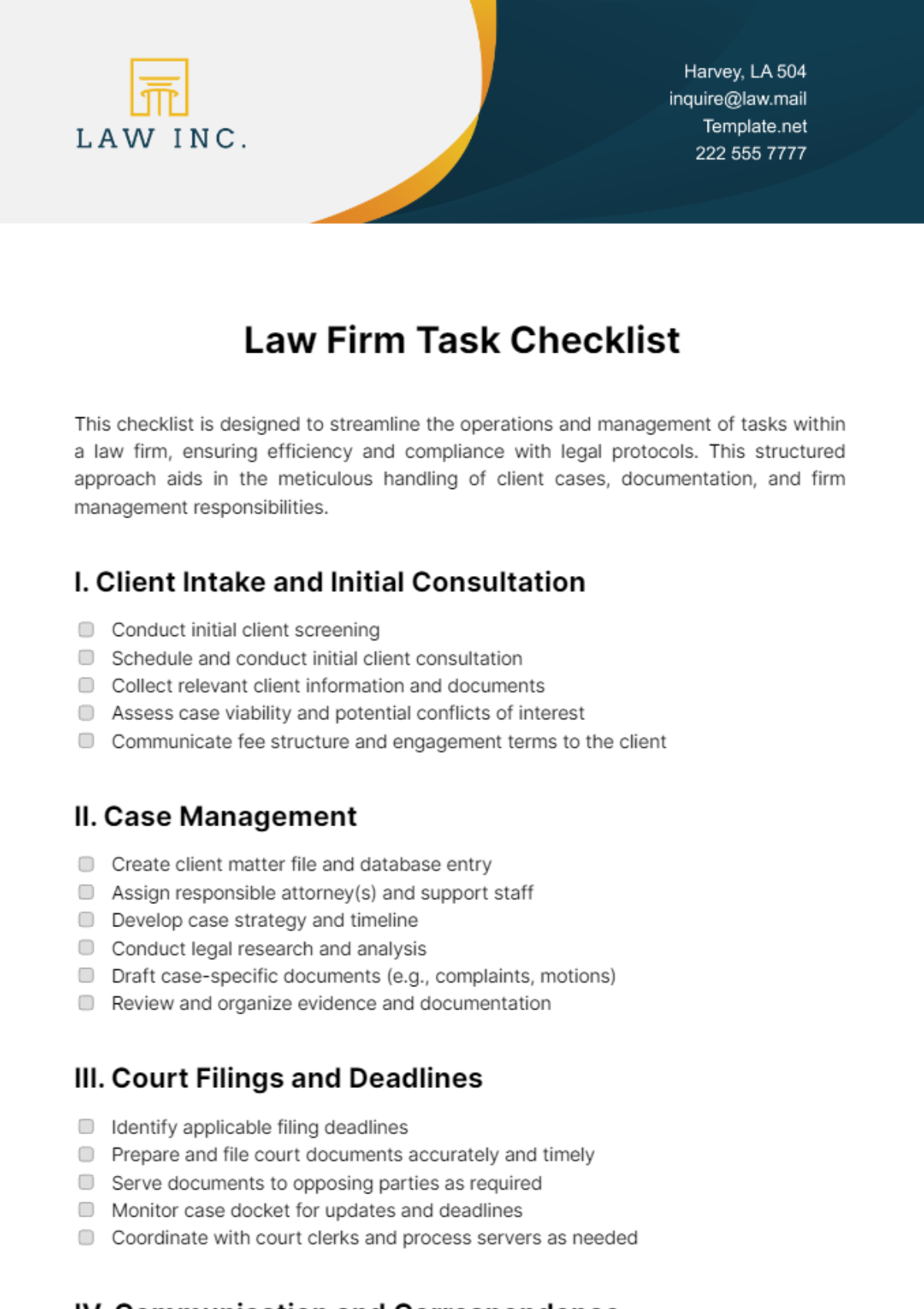Internal Audit Compliance Checklist
I. Compliance Overview
Objective: Conduct routine internal audits to assess the organization's compliance with policies, regulations, and standards.
Responsible Party: [YOUR NAME], [YOUR DEPARTMENT]
Date of Last Review: [DATE]
Next Scheduled Review: [DATE]
II. Pre-Audit Preparation
Define audit objectives and scope.
Review relevant policies, regulations, and standards.
Establish audit criteria and methodology.
Identify key stakeholders and departments to be audited.
III. Audit Execution
Conduct interviews with relevant personnel.
Review documentation and records for compliance.
Assess adherence to internal policies and procedures.
Verify compliance with external regulations and standards.
Identify areas of non-compliance or potential risks.
IV. Findings Documentation
Document audit observations and findings.
Provide evidence supporting identified areas of non-compliance.
Classify findings based on severity and impact.
Communicate audit results to relevant stakeholders.
V. Corrective Action Plan
Develop a corrective action plan to address identified non-compliance issues.
Assign responsibility for implementing corrective actions.
Set deadlines for corrective measures to be implemented.
Allocate resources necessary for compliance improvements.
Monitor progress of corrective actions.
VI. Follow-Up and Monitoring
Conduct follow-up audits to verify effectiveness of corrective actions.
Review and update audit procedures based on findings and feedback.
Monitor ongoing compliance through regular audits and assessments.
Provide feedback and recommendations for continuous improvement.
VII. Independence and Objectivity
Ensure independence and objectivity in conducting audits.
Avoid conflicts of interest when selecting auditors and assessing compliance.
Maintain impartiality and professionalism throughout the audit process.
VIII. Documentation and Record-keeping
Maintain comprehensive documentation of audit activities, including procedures followed and evidence collected.
Safeguard audit records to ensure confidentiality and integrity.
Retain audit documentation for the required retention period as per organizational policies and regulatory requirements.
IX. Training and Competence
Provide training to auditors on audit methodologies, standards, and relevant regulations.
Ensure auditors possess the necessary competence and skills to perform audits effectively.
Regularly update auditors on changes to policies, regulations, and audit methodologies.
X. Risk Assessment
Conduct risk assessments to identify areas of potential non-compliance and prioritize audit activities.
Evaluate the effectiveness of existing controls in mitigating identified risks.
Adjust audit plans based on the results of risk assessments to focus on high-risk areas.
XI. Reporting and Communication
Prepare clear and concise audit reports detailing findings, conclusions, and recommendations.
Communicate audit results to management and relevant stakeholders in a timely manner.
Include management's responses and action plans in audit reports.
XII. Completion and Sign-off
By checking the box below, I acknowledge that I have reviewed and completed the Internal Audit Compliance Checklist.

[YOUR NAME]
Date: [DATE]
















